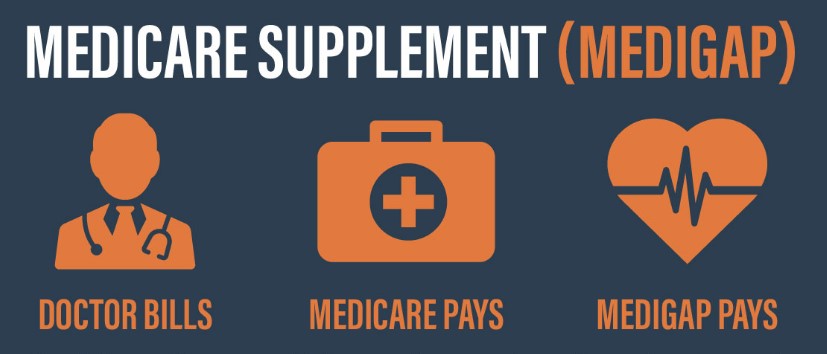A 2024 Guide to Medicare Supplement Insurance Plans: What You Need to Know
Navigating the world of healthcare can be overwhelming, especially when it comes to understanding what Medicare does and doesnt cover. For many seniors, Medicare benefits dont provide enough coverage to handle all medical expenses. This is where Medicare Supplement Insurance Plans, also known as Medigap, come into play. These plans are designed to fill in the "gaps" in Original Medicare, such as deductibles, copayments, and coinsurance.

In this article, well take a closer look at Medicare Supplement Insurance Plans, what they cover, how they work with Medicare, and the key factors to consider when choosing the best plan for your healthcare needs in 2024.
What Are Medicare Supplement Insurance Plans?
Medicare Supplement Insurance Plans, commonly called Medigap, are private health insurance policies designed to supplement Original Medicare (Part A and Part B). These plans are sold by private insurance companies but are standardized and regulated by the federal government. They are called "supplement" plans because they help cover costs that Original Medicare doesnt pay for, such as coinsurance, copayments, and deductibles.
There are ten standardized Medigap plans available in most states (Plans A, B, C, D, F, G, K, L, M, and N), and each one offers a different level of coverage. Some plans are more comprehensive than others, so its important to compare them based on your healthcare needs and budget. In general, the more coverage a plan offers, the higher the monthly premium will be.
What Do Medicare Supplement Insurance Plans Cover?
Medicare Supplement Insurance Plans vary in the amount of coverage they offer. However, they all help cover the following basic benefits that Medicare leaves behind:
Medicare Part A Coinsurance and Hospital Costs
All Medigap plans cover the coinsurance and hospital costs for Medicare Part A, which is your hospital insurance. This can be important because Medicare Part A only covers hospital services for up to 60 days after paying a deductible, and Medigap helps extend coverage beyond that point.
Medicare Part B Coinsurance or Copayment
Medigap plans help pay for the 20% coinsurance or copayment that you would normally owe for doctor visits and outpatient services under Medicare Part B.
Blood Transfusions
If you need a blood transfusion, Medicare only covers the first three pints. All Medigap plans will cover the cost of additional pints needed.
Hospice Care Coinsurance
Medicare covers most of hospice care, but there are small copayments for drugs and respite care. Medigap plans help cover these costs.
Skilled Nursing Facility Care Coinsurance
Some Medigap plans cover the coinsurance for skilled nursing facility care, which can be especially useful if you need extended rehabilitation after an illness or surgery.
Part A and Part B Deductibles
Some Medigap plans, such as Plans C and F, cover the Medicare Part A and Part B deductibles, which can save you money if you have frequent hospital or doctor visits.
While all Medigap plans offer these core benefits, some plans offer additional benefits like coverage for foreign travel emergencies or out-of-pocket limits on how much you spend on healthcare each year.

Choosing the Right Plan: Factors to Consider
Choosing the right Medicare Supplement Insurance Plan depends on your individual healthcare needs and financial situation. Here are some key factors to keep in mind:
Healthcare Needs
Consider your current and future healthcare needs. If you visit doctors frequently or have ongoing health issues, you may want a plan with more comprehensive coverage, such as Medigap Plan F or G. These plans cover more out-of-pocket costs, including Part B excess charges, which are fees some doctors charge above Medicare's approved amount.
Premium Costs
Medigap plans have monthly premiums, and the cost varies depending on the level of coverage and the insurance company. Generally, the more comprehensive the coverage, the higher the premium. If you're relatively healthy and don't expect to need frequent medical care, a plan with lower premiums and higher out-of-pocket costs might be a better fit.
Plan Availability
Not all Medigap plans are available in every state, and some plans are being phased out. For instance, Medigap Plans C and F are no longer available to people who became eligible for Medicare after January 1, 2020. If youre looking for a more comprehensive plan, Medigap Plan G is a popular alternative.
Foreign Travel Coverage
If you travel outside the U.S. often, you might want a plan that offers coverage for medical emergencies abroad. Plans like Medigap Plan F and G cover 80% of foreign travel emergency costs, which can be a crucial benefit for frequent travelers.
Future Health Considerations
While you may be healthy now, it's essential to consider how your health needs may change in the future. Medigap plans can be a valuable safety net as healthcare costs rise with age. Choosing a plan that balances current affordability with comprehensive future coverage can save you from unexpected medical expenses later on.
Medicare Supplement Insurance vs. Medicare Advantage
It's important to understand the differences between Medicare Supplement Insurance Plans and Medicare Advantage Plans (Part C) because they offer two very different approaches to healthcare coverage.

Medicare Supplement Insurance Plans work in conjunction with Original Medicare to cover out-of-pocket costs. In contrast, Medicare Advantage Plans replace Original Medicare and provide coverage through a private insurance company. Medicare Advantage Plans typically offer lower premiums than Medigap plans and often include additional benefits like prescription drug coverage and dental care. However, Medicare Advantage Plans also have network restrictions, meaning you may be limited to a specific group of doctors or hospitals.
In contrast, Medigap plans allow you to see any doctor that accepts Medicare, giving you more flexibility and control over your healthcare choices. The right option for you depends on your preferences for flexibility, coverage, and costs.
Conclusion
Medicare Supplement Insurance Plans provide valuable coverage for the out-of-pocket expenses that Medicare doesn't cover. In 2024, with rising healthcare costs, these plans can offer peace of mind by ensuring unexpected medical bills won't burden you. Choosing the right Medigap plan requires an understanding of your healthcare needs, budget, and how often you plan to use medical services.
Whether you need comprehensive coverage for frequent doctor visits or simply want to guard against high costs in case of a health emergency, theres a Medigap plan that can fit your needs.












